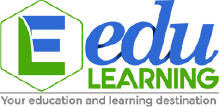The Concept of Immersive Education
Immersive education is a form of online education where you create a virtual learning environment and immerse students in the content. It is also called “learning outside the box” because it helps students learn in different ways such as learning by doing, creating, experimenting and creating digital content.
The concept of immersive education is about immersing students in a world of opportunities. It's about giving them the skills to compete in the globalised workforce. Immersive education benefits are clear - it accelerates learning, creates higher levels of engagement, and helps to reduce costs. However, immersion also presents challenges that must be addressed by educators to successfully implement this approach.
Some examples of immersion include virtual reality, gaming, and role-playing. There are also active methods that help students learn through experiences like field trips or work-integrated learning that takes place outside the classroom.
Immersive education can be used in all types of educational institutions. It's suitable for students who are struggling with reading comprehension, mathematics, and other subjects that require a lot of work to do on their own. This educational approach helps increase engagement among students and it includes elements like quizzes, games, contests etc.
Immersive education helps students learn better because it's engaging and fun to play along with this concept. Students are motivated to learn when they are doing something interesting which is why they prefer to immerse education over traditional learning methods.
Immersive education is a method that allows students to learn through a variety of interactive projects and simulations. This helps them develop “real-world” skills and knowledge rather than just absorbing knowledge from textbooks.
In order to provide the best learning experience, the concept of immersive education embeds learners into a virtual reality environment that is designed to imitate real-life scenarios. In this way, the learning experience becomes more realistic and engaging for learners as they engage with varying challenges that can be found in different fields of study.
There are multiple benefits associated with immersive education such as being able to promote creativity, collaboration skills, critical thinking skills, analytical skills, empathy for other people's perspectives etc. It also helps students better understand how things work in real life so they can develop their skills and knowledge constructively.
It can be used to:
- Teach in any discipline including
- English as a foreign language (EFL)
- Subjects including Geography that helps students explore their area of study in more detail.
Immersive education also focuses on content-centred learning through activities that build skills. This allows students to experience and understand concepts and topics, not just read about them.
Different immersive education platforms offer different benefits: multimedia support, peer-to-peer interaction, personalised learning experiences and engaging learner autonomy.
One study showed that immersive education actually enhances memory retention by 50%. As a result, learners can gain skills faster than they would under conventional education methods which are based on memorisation.
























































